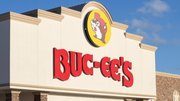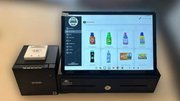Article
Shaping customer experience a critical strategy as retail recovers
'Indistinguishable sameness' can alleviated by a cohesive experience plan.

July 5, 2010
As fragile as it may be, there’s a retail recovery underway as consumers gain more financial confidence. Now that retail acquisitions have calmed down and the economy is stabilizing, there’s a fight for consumable dollars.
One of the most potent pieces in the retail arsenal is ensuring a consistent and differentiated consumer experience. Retail executives today are now realizing that to be competitive and win the war for consumer spending they must focus on the intangibles of the customer experience. Further, they are redefining their understanding of what customer experience truly means. It is more than operational excellence, ease of doing business or pricing strategies. It is also more than just providing customer service training to the front line. It is differentiating the brand in the consumer’s mind by ensuring a favorable perception that exceeds expectations. It is building value in the interactions associates have with the customer to make the sale. No longer is the status quo of merchandising and pricing strategies enough. Customers are seeking out those retailers who take a true interest in their needs and feelings before spending money.
Over the years, when retailers focused on diversification and paid little attention to how they were being perceived by customers, malls became plagued by an indistinguishable sameness.
"A consumer can walk into any mall in the country," according to the National Retail Federation, "and find it difficult to ascertain where they are shopping. The only clues are the exception to the rule — some regional differences in design, or perhaps a regional department store chain. Furthermore, each end of the mall is nearly identical, the sole point of differentiation is which storefront is the first to markdown its wares."
But now that consumers are buying again — retail sales have increased the past seven months — stores cannot afford to go back to business as usual. Success in the current climate will depend on a plan to embrace management of the customer experience.
What differentiates the most successful brands, in many cases, are orchestrated interactions between associates and customers. Somehow these retailers prepare and inspire staff to embody a culture that customers value.
Too often retailers have rejected the idea of developing their store personnel beyond the actual job requirements. The arguments often mention turnover or payroll expense, despite the fact that brand differentiation and revenue success depends on people development. Retailers that will be successful in today’s new consumer economy must see development as a strategic operational imperative and not an HR "nice to have." A company’s alignment of behaviors and skills to their brand promise that exists within the consumer psyche will produce a consistent brand experience that will increase productivity and most important, additional sales opportunities. Retailers that have executed this strategy have realized quantitative results like increased conversion, units per transaction, comps and sales per square foot. They’ve also seen a decrease in management and front-line turnover, and increased productivity.
To successfully execute on this strategy, there must be alignment in the roles and responsibilities of senior management, through the organization all the way to the store associates.
Defining the strategy begins with senior management. They must first outline the rationale for the strategy and determine expectations of both quantitative and qualitative metrics to be aligned to ensure execution of the strategy is succeeding. The next step is to then develop a communication strategy that sends a clear, defined message to all involved in ensuring success. This message must build the commitment of all levels so that they see value in the strategy and are able to embrace their own role and responsibilities. Without alignment among everyone on the expectations and value in creating a branded experience, retailers run the risk of multiple interpretations of the strategy, which will certainly cause any brand experience to fail.
The initial buy-in and long-term commitment of regional leaders are critical to the alignment of processes to support successful realization of the experience strategy. Regional leaders are responsible for directing and coaching the stores to effectively increase the customer’s perception about the brand. Utilizing the typical data important to regional leaders, they can analyze and track the successful execution of the strategy. They can also uncover those operational or human relations obstacles that can derail the focus. Regional leaders can develop their store managers into leaders that can understand the importance of their store teams, who in turn create the desired experience, one customer at a time. It’s important for them to also be able to focus on the operational tasks that are critical to the success of the brand.
Store managers have a difficult role. They are asked to run the store "like it was their own." They are also responsible for execution and support of brand strategies. Their daily actions impact the metrics that all retailers scrutinize. However, many times they aren’t given the coaching, the tools necessary or the empowerment to influence the metrics. Store managers have the responsibility to develop, coach, motivate and provide recognition to their store teams to effectively instill the behaviors necessary to achieve a branded experience. Too often these tasks fall upon support services or learning and development.
Instead, they should heavily involve the store managers, who have ultimate responsibility for the store’s success. That said, they too must be given the appropriate support and tools to provide that development. Those tools must be aligned to the daily work environment so that payroll becomes a non-issue. The delivery can be "just in time" and aligned to the specific needs of the individual. Store managers themselves also should receive development that allows them to effectively assess, teach, coach and reinforce the skills necessary to achieve the desired outcomes.
Like their store managers, store associates must have a feeling of commitment and value when it comes to executing a customer experience strategy. They must understand that the retailer is not just mandating a new initiative, but aligning the necessary skills, support and processes to execute effectively so that they can deliver on the expected outcomes. Research has shown that today’s retail associates must feel a personal purpose and sense of value in their role. The focused development and coaching store managers provide teams have a direct correlation to the successful outcomes desired of any initiative. To foster a store team that works cohesively and is supportive of one another and their customers drives increased productivity and revenue. Retailers that have implemented this focus have reported increase in retention rates of 30 percent. By focusing on their success, retailers will build an associate base that will not leave when another retailer offers 50 cents more in hourly wage.
According to a survey by Deloitte, consumers describe their financial stand as good as or better than last year. They also plan on spending more this year than last. As planning for fall and winter selling seasons approach, this gives retailers plenty to be cautiously optimistic about. It also underscores the need right now to pay attention to the customer experience, managing it one customer at a time. Building this kind of customer-focused culture requires a new focus that blends operational excellence with human capital delivery. They are not separate, and both are necessary to truly drive revenue and break the commoditization of your retail brand.
K.C. Blonski is the director of travel, leisure and retail markets for consultancy AchieveGlobal. (Photo by busyPrinting)
 ChatGPT
ChatGPT Grok
Grok Perplexity
Perplexity Claude
Claude




